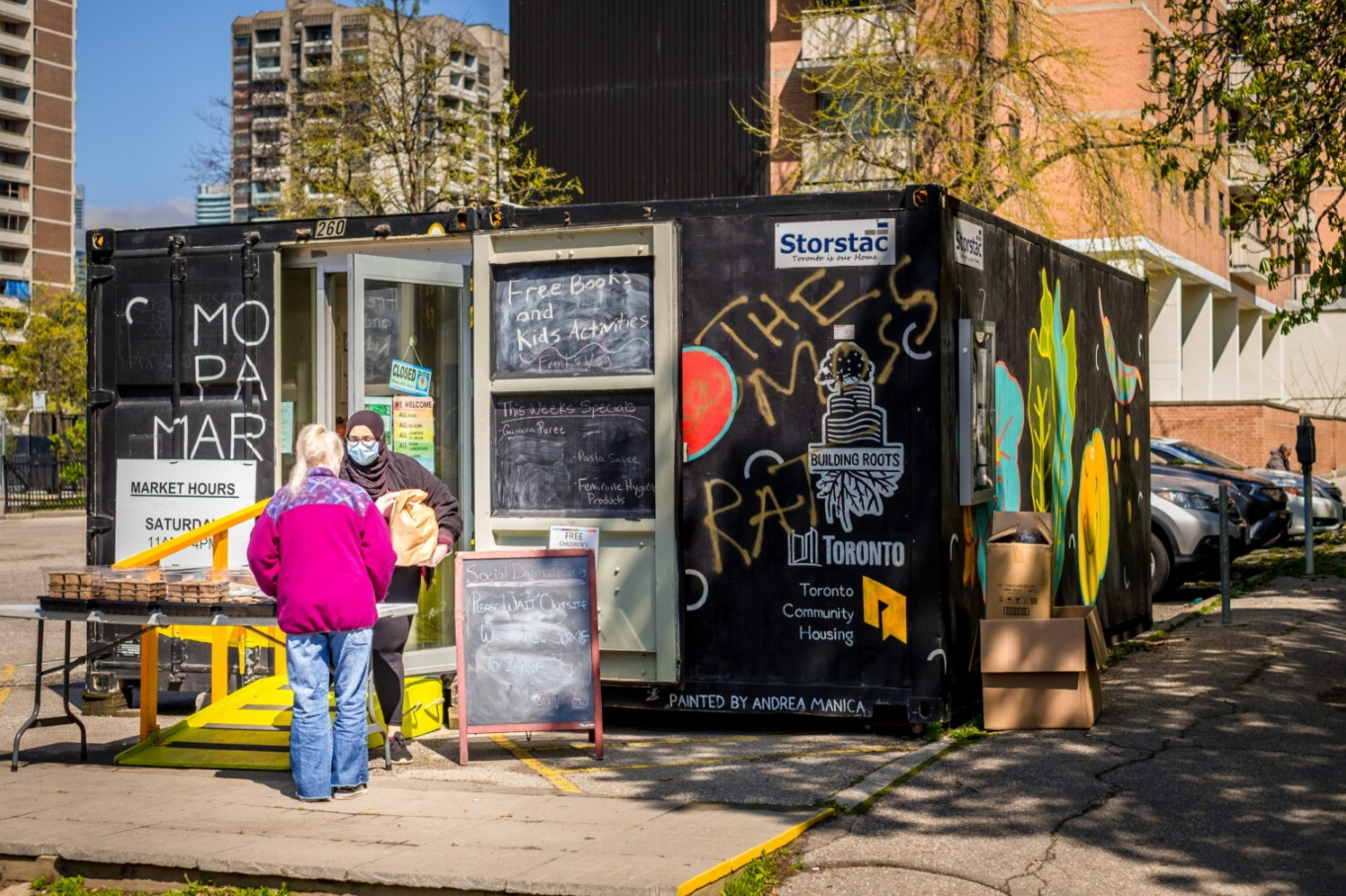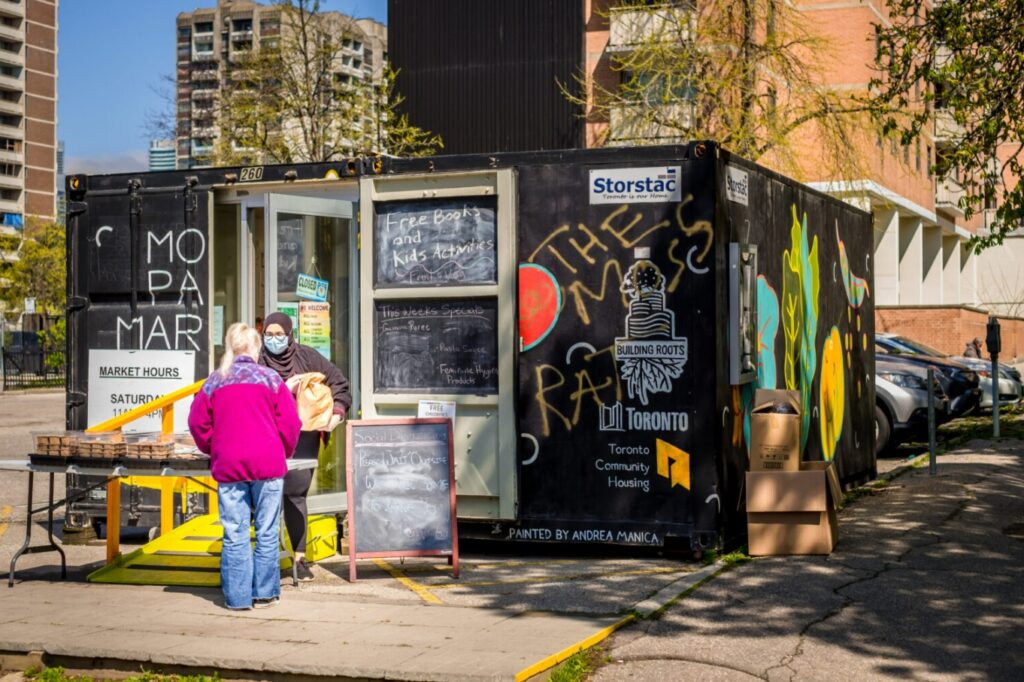
Saluting three Toronto charities doing great work in challenging times
By John R. Fortney, President, Rotary Club of Toronto
The Rotary Club of Toronto Mission:
The Rotary Club of Toronto is one of many amazing Toronto Charities that has been helping our city’s most vulnerable citizens for over 100 years. With the COVID-19 pandemic radically altering our daily lives, this work is more important now than ever. But we don’t do it alone. Through our committees and members, we have been reaching out to many charities and organizations to see how they’re doing, what effects COVID-19 has had on their work, and how they are adapting in order to continue serving our community.
The mere fact that these grassroots organizations continue to exist in the COVID-19 era is a testament to the creativity and generosity of so many Torontonians, and highlights the determination to help people living in dire situations. With the need to social distance and the virtual shut down of the city, the distribution of food and provision of shelter, medical services, transportation, education and other necessities have had to be quickly reconfigured. It hasn’t been easy.
While many of us have the luxury of adopting tools like Zoom conferencing, what about those with no access to computers? For those dealing with social or mental health issues and forced to social distance alone, how do you keep in touch? For those who have lost their employment or are at high risk of complications from illness, how do they get food? These are just some of the questions and challenges facing front-line charities. While there are so many excellent organizations rising to these challenges, below is a sample of some of the amazing work being carried out by organizations you may not be familiar with.
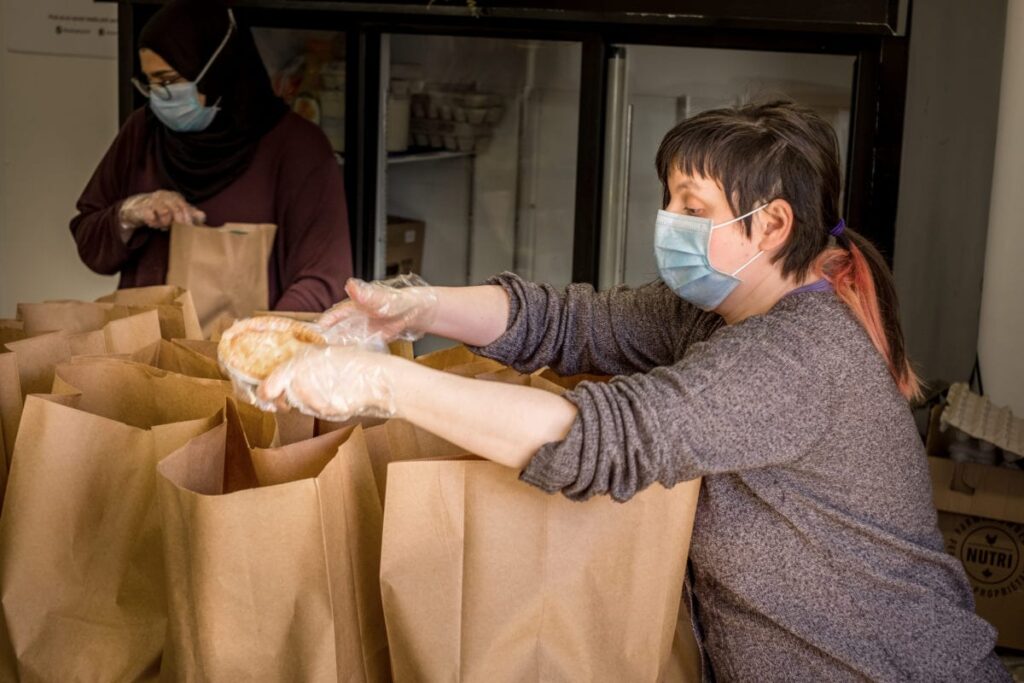
Building Roots Mission
Building Roots – www.BuildingRoots.ca
Since 2013, Building Roots has served downtown Toronto’s east end communities, particularly Moss Park. With a mission to enable people to create socially cohesive communities and vibrant, resilient neighbourhoods, the organization was founded in response to the lack of fresh food and agriculture space in Toronto. Before COVID-19, Building Roots operated The Moss Park Market, an Urban Farm at Ashbridges Estate, in addition to a number of events and workshops. Many of their efforts were city-firsts, and they have been widely covered in television and print media.
In the COVID-era, the charity’s activities have focused on three areas: Ensuring food access for those most vulnerable; offering books and other at-home resources for children; and distributing reliable information throughout Toronto Community Housing in Moss Park. Of particular note, a phone line was established for seniors and other vulnerable people to register for weekly food deliveries, which include fresh produce and ready-made meals prepared by local restaurants and bakeries.
One thankful recipient of these groceries sent the following: “It is with tears of gratitude and much heartfelt appreciation that I am sending this message to you. I received my vegetables and fruit, soup, and so much more! I am so thankful for this gift, which I will never forget. It has been a struggle for me to keep all the balls in the air. I am overwhelmed by the generosity and the kindness. I was a nurse and I know that I never asked for any thanks, but this gesture is not going unrecognized and I want to thank you and your organization ever so much.”
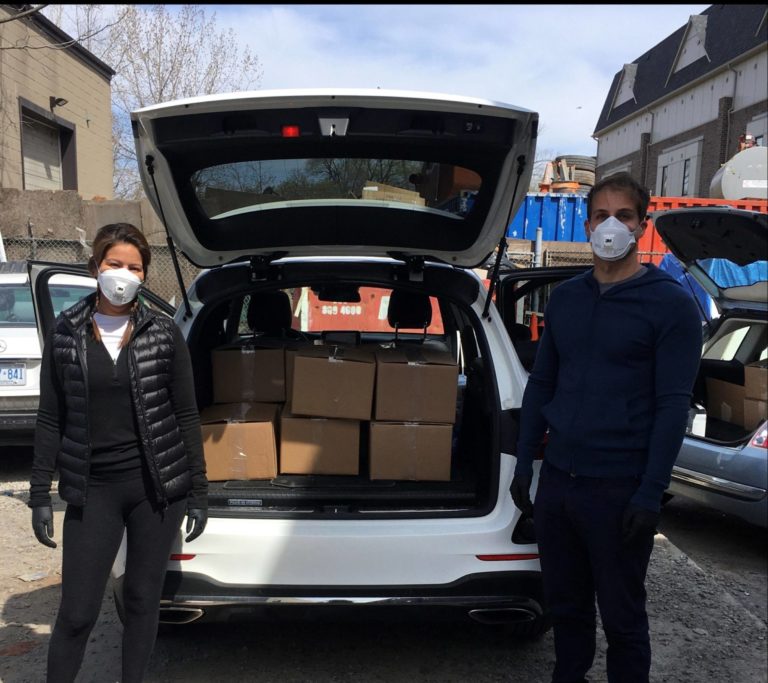
Anishnawbe Health Foundation Missions
Anishnawbe Health Foundation – www.AHT.ca
Founded in 1987, the Anishnawbe Health Foundation (AHF) is the charitable arm of Anishnawbe Health Toronto (AHT) and has been the city’s sole provider of both Western medical services and traditional Indigenous healing services. AHF’s mission is to improve the health and well-being of First nations, Inuit and Metis people in spirit, mind, emotion and body by providing traditional healing within a multi-disciplinary health care model. Today, the foundation serves the largest and most diverse Indigenous population in Ontario, an estimated 70,000 people.
Typically, AHF provides nearly 60 services and programs focusing on Primary Health Care, Mental Health Programs, and Child, Youth and Family Care. These days, traditional healers and medical staff are working together to provide support via telephone and in-person visits for urgent care. The staff are rotating between working from home and the office. All efforts possible are made to ensure the office will be staffed safely.
The community that AHF serves is one of Toronto’s most vulnerable and, through their work, they are providing access to food for thousands, they are providing hand sanitizer to the homeless or precariously housed (approximately one third of all Indigenous adults in Toronto), and they are providing emergency housing support funds to those in danger of losing their homes. Furthermore, for lose with a lack of access to technology, AHF is providing video calling and internet access to clients with mental health concerns and who are vulnerable to regression during the pandemic.
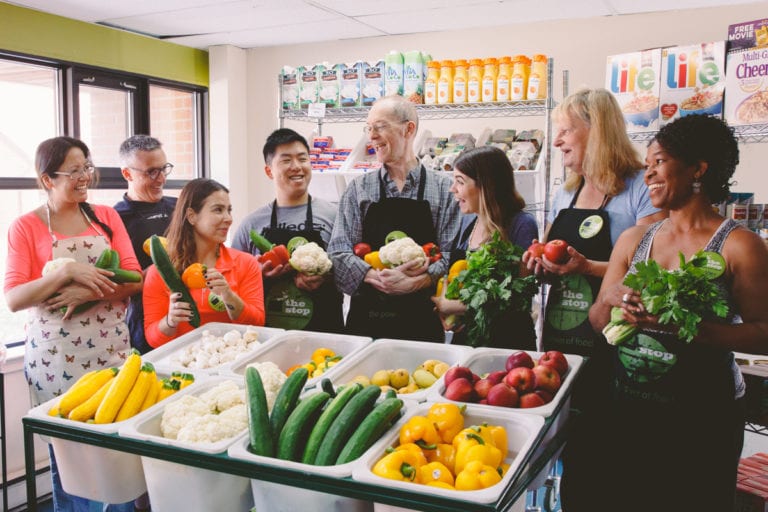
The Stop Mission
The Stop – www.TheStop.org
The Stop was originally established as one of Canada’s first food banks, providing low-income members of the population with nutritious food. Over time, The Stop has grown to become an essential support service for people struggling with mental health, poverty, newcomer status, or unemployment. Today, it works to meet the needs of low income, homeless, or marginally housed and socially isolated residents living in the communities of Davenport West and St. Clair West. Their regular programs include meal takeout and delivery, Healthy Beginnings (a pre- and post-natal nutrition support program for pregnant women in their catchment area), and, of course, the Food Bank. In more normal times, they serve 75,000 meals across all their sites, delivering 9550 food hampers to families, serve 5000 in their Good Food Market and connect with 850 families through their Food Bank.
With such a diverse population, The Stop has experienced a surge in demand for support since the onset of COVID-19, especially from woman and children, seniors, low wage earners and seasonal workers. The organization is now dealing with the usual challenges: Growing demand coupled with the need to practice distancing, while integrating new protocols.
By week three, The Stop was grappling with a 30 percent increase in demand for meals and a 50 percent increase in demand for food bank supplies. Weeks four and five saw an increase of 127 new families at The Food Bank. By comparison, a normal month would see roughly 20 new families. During the pandemic they are not conducting outreach to new mothers, but continue to serve those already enrolled. At the time of writing, one baby has been born into the program during the state of emergency.
As the pandemic eases and life returns to some form of normalcy, problems created or exacerbated by COVID-19 will emerge. An increase in spousal abuse, job losses, and mental health issues will turn many people to these welcoming agencies. The aforementioned are but a few of the many selfless organizations stepping up to meet the challenge head on. The creativity demonstrated in both the type of programs they deliver and in the way they are executed is heroic. In fact, this pandemic has shone the spotlight on many heroes across our great country, from healthcare workers and first responders to food store employees, truckers and charities working to keep us safe, healthy and fed. More importantly, they are also ensuring that those citizens that society so often forgets, are also kept safe, housed and fed. They represent the best of us.
______________________________
At over 160 members strong, The Rotary Club of Toronto is one of the oldest Rotary clubs in the world. Organized in 1912, its members develop exciting community service projects that address many critical issues, including: children at risk, poverty and hunger, urban violence, illiteracy, drug abuse, and more. www.rotarytoronto.com

